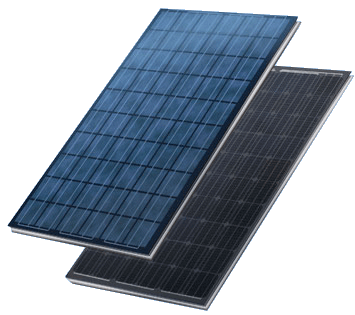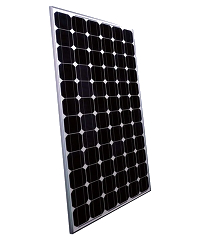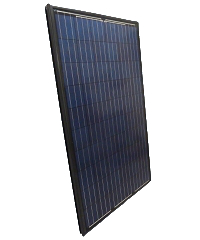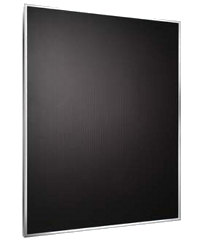Solar Panels represent the most reliable, predictable, low cost and low maintenance source of energy for offgrid and grid connected power systems. Solar modules are typically mounted on the roof or ground mounted frames to convert sunlight into electricity (DC). An inverter then converts the DC electricity into common 240V alternating current (AC) electricity. This can then be used to either power appliances directly, or charge storage batteries for use at night. We offer a range of solar technologies from leading manufacturers, ensuring the right technology is utilised for your situation.
Contact us today on 1300 334 839 or email info@offgridenergy.com.au


Monocrystalline solar panels are a proven technology that have been widely in use for over 50 years. Monocrystalline panels have a higher conversion efficiency which provides high annual yields and makes them ideal for areas where space is limited. Monocrystalline requires high grade silicon which can be costly to make.
Winaico
Top performance for all applications, Winaico have the Gemini Series solar modules, and the N-Type Bifacial Glass-Glass Series.
Download the Winaico Gemini solar panel datasheet
Download the Winaico N-Type Bifacial solar panel datasheet

Trina Solar
Trina are one of the worlds largest solar manufacturers, with a reputation for making reliable high yielding panels (kWh/kW).


Polycrystalline panels are installed widely thoughout Australia and tend to outperform monocrystalline modules on hotter days and in lower light conditions. They are usually marginally less space efficient though, and take up slightly more area as a result. Polycrystalline silicone cells have a simpler manufacturing process than monocrystalline.
Tindo Solar
The only solar panel manufactured in Australia. Tindo focus heavily on quality modules for Australian conditions, supported by a local warranty.

Thin Film has great low light and shade performance qualities, as well as high temperature tolerance. Thin Film will yield more energy per Watt (kWh/kW) than any other solar panel, but is less space efficient and requires more physical area. Thin Film modules have less embodied energy, giving them a shorter energy payback period.
Thin Film Hybrid modules combine thin film with multicrystalline in order to improve space efficiency while maintaining thin film’s other attractive qualities.
Electrical Contractor Licenses: VIC REC-31913, TAS 15608294, WA EC15901, SA PGE278927, NSW 279181C
We acknowledge the Traditional Owners of Country throughout Australia and recognise their continuing connection to land, waters and culture. We would like to specifically acknowledge the Kaurna, Wathaurong, Wonnarua, Wiradjuri and Boonwurrung people. We pay our respects to their Elders past, present and emerging.